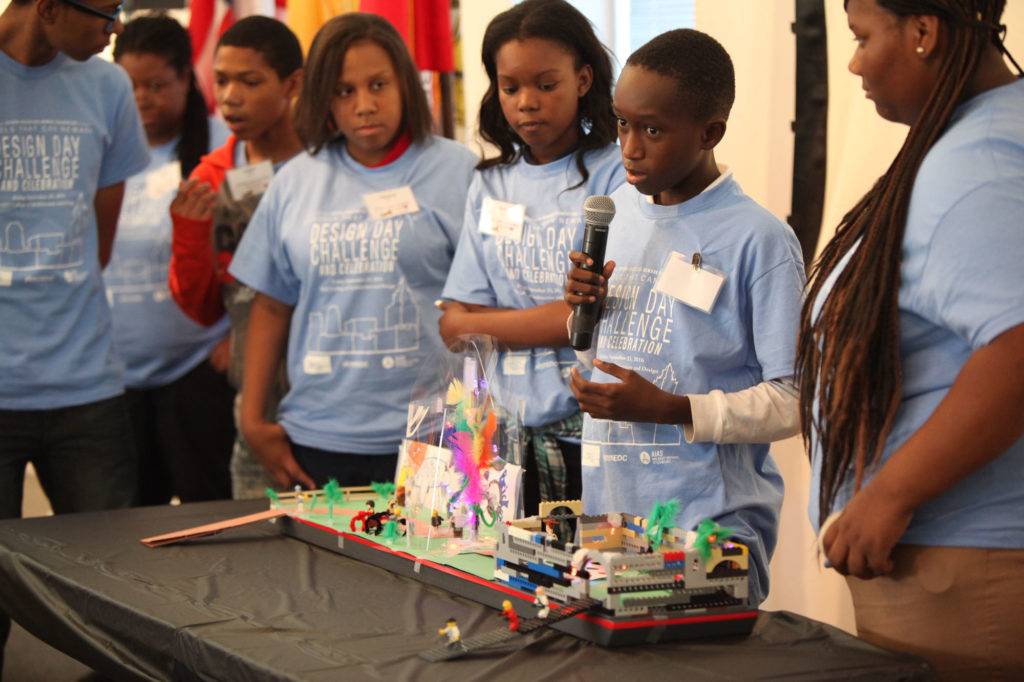
Students engage in real world learning with a design thinking challenge.
Schools That Can continues to unite leaders to expand quality urban education and close the opportunity and skills gap, but now with a narrower focus that emphasizes real world learning. The new transition tackles the opportunity and skills gap more aggressively, for we recognize that real world learning is key to a cohesive education to employment (e2e) pathway.
In earlier years, our work placed great importance on uniting leaders and grassroots organizing as we grew our local networks and experimented with different forms of programming, partnerships, and thought leadership. During this time, our local chapters began to flourish as we saw our networks of schools in NYC, Newark and Chicago double in size. Programming like our study tours remained consistent and impactful, our partnerships with education innovators were increasing and evolving, and we had high turnout at our annual forums.
Yet, an obvious gap and need persists. Only half of high school graduates are prepared for postsecondary success. Meanwhile, 97 percent of Americans believe that students need “real world” skills to succeed beyond high school and 4 of 5 high school dropouts indicate that real world learning experiences might have kept them in school.
Real world skills and experiences seem to be a catalyst for postsecondary success, so it was alarming when in a survey last Spring, only 15 percent of STC schools self-identified as exemplary Real World Learning schools and a full 30 percent reported that they were “emerging” and still trying to figure it out.
As we narrow our focus, our core methodology will not change, but we will adopt a more cohesive approach. We will continue to connect schools with others across their region and throughout the nation, but will:
- Offer more professional development support to guide schools through the process of integrating real world learning into the curriculum
- Work with partners to offer world-class professional development opportunities that promote new approaches to teaching and learning
- Assist educators in taking risks and piloting new methodologies through a collaborative support network
- Build the knowledge base related to real world learning within schools and our larger community
- Redesign and strengthen our professional learning groups (PLGs) to support ongoing collaboration and impact in our regions
Schools That Can is excited to make this transition to focus on real world learning and make strides toward closing the opportunity and skills gap for our students.

